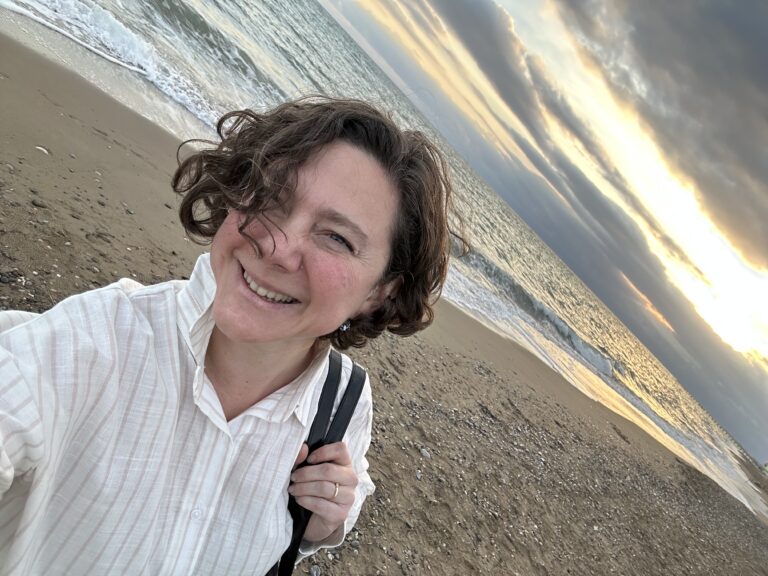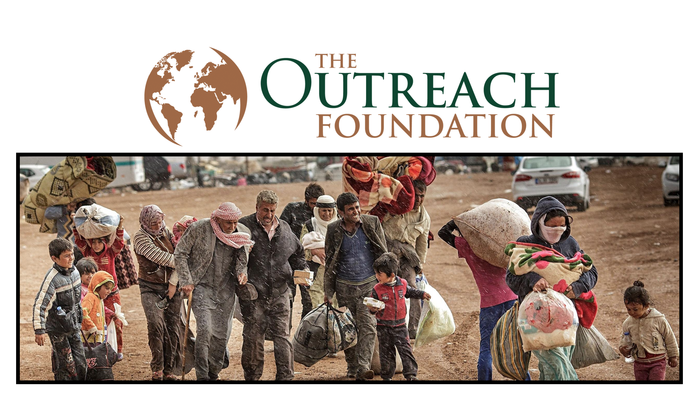 Global Engagement, Uncategorized
Global Engagement, Uncategorized
The happiest time of the year At long last, it’s the most wonderful time o...
 Global Engagement
Global Engagement
By: ECO Team
By Jen Haddox, Director of Global Engagement
A few weeks ago, I met a young Christian leader from Central Asia. He shared how all of his childhood, he dreamed of leaving his home and being successful in the West. He was fluent in English, bright, and engaging—clearly capable of achieving his dream. There was even a door open for him to receive higher education in the UK. But God spoke to him, and he obeyed—by going back to his hometown to invest in the future of other young people, a future that includes the opportunity to hear the Gospel. With a friend, he opened an educational institute that offers language classes, social connections, and the opportunity to interact with local followers of Jesus. This is not easy work, and he has had to endure hardships, but God is giving this business favor and opening the door for young leaders to be and make disciples.
His story is not the only one I heard about overcoming barriers to the Gospel. In March I had the tremendous privilege of traveling with Frontier Fellowship staff to participate in a regional gathering of Central Asian partners in a nearby nation. The purpose of this annual conference is to collaborate in their work and deepen relationships for the witness of the Gospel in their region. Over the course of the week, I was able to develop meaningful connections with Central Asian leaders who serve Jesus in contexts where there are significant social and religious barriers and hear some of their stories like the one I shared above. Despite the restrictions they face, they have creative, flourishing ministries—women’s rescue shelters that focus on holistic care, church multiplication strategies connected to sustainable local businesses, and youth empowerment programs where local Christians can build relationships with their least-reached neighbors. In all of these creative initiatives, people from different religious backgrounds are meeting Jesus and learning to follow Him.
I have been asking God to show me what message I was supposed to bring home with me, besides this handful of new friendships. The multicultural worship, prayer and Bible study discussions were rich; I came home having experienced the presence of the Holy Spirit speaking into my life. But what has stuck with me most is the inspiration of being in community with such dedicated followers of Jesus. I encountered such an amazing number of professional, educated, entrepreneurial, and dedicated disciples who are giving their lives for the sake of the gospel.
One team of professional Christian women led an organization that cares for women and children who come to them from situations of domestic violence and trafficking. Their shelter locations share the hope, love and healing of Christ in tangible ways, through skill training, employment opportunities, educational programs in local communities and more. The team includes business entrepreneurs, social workers, and licensed counselors; these women are bravely forging a path for other at-risk families in their community in the name of Jesus.
One local pastor received a vision that everyone in his country should have an opportunity to hear the Gospel, but faced a unique challenge—how can the Church multiply when there is no way for the Church to legally exist? God inspired a creative strategy: a water purification business, led by teams of Christian families. Thus, Springs of Water was born. Now, teams of church planters are moving into least-reached villages throughout Central Asia, selling water at affordable costs, all while sharing the Gospel with their new neighbors. By God’s grace, Christian communities are forming in new places around these sustainable businesses.
There are 110 million people in Central Asia, and very few have the opportunity to meet a follower of Jesus. Even as I am inspired by the creative witness of the leaders I met from that region, I have to ask, What am I going to do besides pray for them from afar? How can my church come alongside these dedicated leaders? What should my church be doing differently in our context? As ECO seeks to build flourishing churches in social contexts that are increasingly resistant to the Church, what can we learn by walking alongside ministry partners who live this reality already? If you’d like to explore that question or visit the region with me next Spring, please reach out!
 Global Engagement, Uncategorized
Global Engagement, Uncategorized
The happiest time of the year At long last, it’s the most wonderful time o...
 Global Engagement, Uncategorized
Global Engagement, Uncategorized
“All they asked was that we continue to remember the poor, the very thing I had...
 Global Engagement, Uncategorized
Global Engagement, Uncategorized
The Outreach Foundation invites your congregation to hold a special offering on...